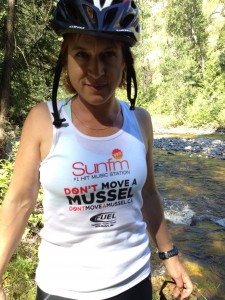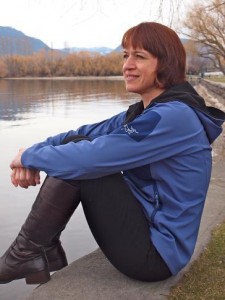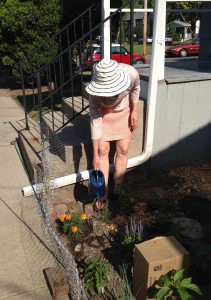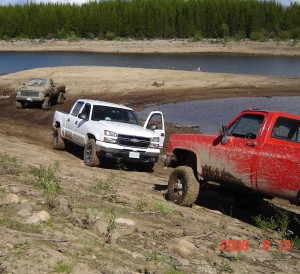“It isn’t pollution that’s harming the environment. It’s the impurities in our air and water that are doing it.” – Dan Quayle
Crammed in a cab with Bob Sanford and David Brooks, listening to adventure stories about Middle East river agreements. I jumped in with one of my few international water anecdotes. “An Ethiopian hydrologist told me that water security – for them – is five litres a day, per person, within a three kilometre walking distance.”
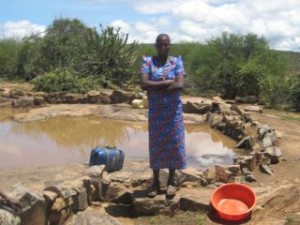
A Kenyan farmer, building a catchment for her water supply. Photo credit: Eva Kaye-Zwiebe
The driver gave a derisive cough. “That guy must have been from the countryside,” he said, shaking his head. “I’m from Addis Ababa. We used at least six litres, and we didn’t have to walk for it.”
Strolling from kitchen to bathroom, I might use 100 litres of pure, fresh water a day without giving a second thought. If I wander out and turn on my sprinklers, that might go to 1000. And I’m average!
Let’s raise a glass to drinking water: so cheap, so abundant, we wash our cars with it. If it weren’t for the empty plastic bottles lying around, water would be almost invisible.
Back at home, I asked some guys next to me at a restaurant what they thought about drinking water. “We don’t think about it. We don’t want to. We just want to be able to get it.” Tommy and Ken were executives from the auto industry, and after some discussion, they admitted to being skeptical about climate change, but aware there were problems out there. “Without water there’s no life. Look at the Dead Sea, it’s dying!” Continue reading →

